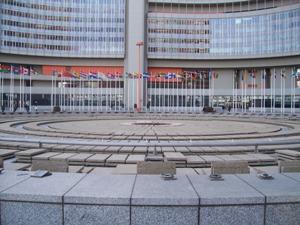I have criticized the ease with which some media outlets and even some reformers have accepted the argument made by prohibitionist advocates that courts are certain to overturn the Washington and Colorado marijuana legalization initiatives, or their regulatory systems at least, based on federal supremacy. Most legal scholars in the news have expressed skepticism that a preemption challenge of the laws, as it's called, would succeed, though we can't know for sure until and unless that goes through the courts.

How easy would this to be address? Pretty easy. Bolivia did it this year. That nation has had problems with the treaty ban on coca growing, even for traditional purposes (purposes other than cocaine) as has been done in Bolivia for thousands of years. Attempts to enforce the ban through US-backed eradication programs have fomented civil instability, ultimately leading to a backlash in which a coca grower and indigenous leader, Evo Morales, won the presidency in 2006. (Shameless promotional fact: Morales's vice-president, Ãlvaro GarcÃa Linera, spoke at our 2003 conference.)
What happened is that the Morales administration sought a modification to the Single Convention to address the coca issue, but was rebuffed. So late last year, they withdrew from it. Then they announced they would rejoin the treaty on January 1, but with "reservations" stating their non-participation with respect to the coca provision. If one third of member nations object to Bolivia's readmission to the treaty -- by the end of this year, if I'm not mistaken -- they can be prevented from rejoining it, and potentially have problems in some regulatory areas. But other countries would suffer problems from that as well, and it is unlikely.
The US could do that too. Or, and better, we could seek the revision of the treaties to permit legalization. The US would be powerful enough to pull that off, and the rest of the world is mostly concerned with their own interests and are not clamoring for the continuation of marijuana prohibition in the US in any case.
One way or another, it will be pretty easy to handle the drug treaties, once the political will exists here to enact legalization under our own laws. The treaties are a valid issue, but not a difficult one to surmount.
This work by StoptheDrugWar.org is licensed under Creative Commons Attribution-ShareAlike 4.0 International
Add new comment